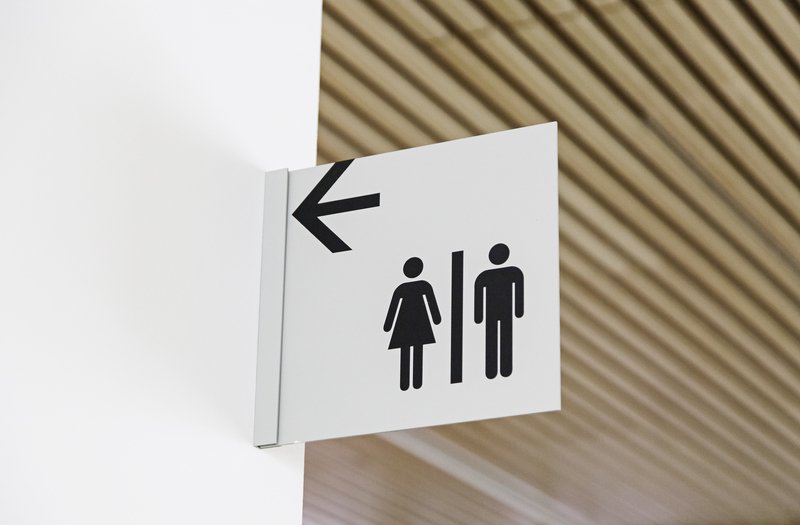Urinary Incontinence: Myths and Treatment
by Ralph H. Duckett, MD

There are several topics that can be uncomfortable to talk about when it comes to your urinary health. Urinary incontinence can be an uncomfortable subject to discuss with your provider, but it doesn't have to be. No one wants to admit that they have trouble getting to the bathroom or experience urine leakage. However, urinary incontinence is common with around 33 million people that experience urgency, frequency and leakage of urine. Because many patients choose not to talk about their symptoms, they may not realize that incontinence is highly treatable, in some cases even curable, at all ages. Additionally, many women have been told that incontinence cannot be treated or that treatment does not last.
Types of Incontinence
There is no standard form of incontinence that all patients experience. Instead, there are three main types of incontinence that affect people of all ages. In many cases, patients may experience mixed incontinence which involves two or more types in combination.
Stress Incontinence
This is the most recognizable form of incontinence that often results in physical changes in women like pregnancy, childbirth, menopause, pelvic prolapse and vaginal surgery. In men, most stress incontinence follows prostate and bladder surgery. Stress incontinence is triggered by sneezing, coughing or any other movements that increase abdominal pressure on the bladder.
Urge Incontinence
Urge incontinence occurs when you lose urine for no apparent reason while suddenly feeling the need or urge to urinate. Most often, this is due to inappropriate bladder contractions with abnormal increase in bladder pressure. This type of incontinence can cause you to empty your bladder in sleep, after drinking a small amount of water or when you touch water or hear it running.
Overflow Incontinence
This type of leakage occurs when your bladder does not empty well and overflows or leaks urine. It is caused by weak bladder muscles or a blocked urethra. Overflow incontinence is more common in men than women due to prostate problems.
Diagnosing Incontinence
The first step in correcting your incontinence is to speak with a doctor that is well-acquainted with incontinence to determine the type(s) you are experience. Do not be be afraid or embarrassed to discuss your problem with your doctor. Many people have the same problems with age. Your doctor will ask about your symptoms and will conduct a physical examination to locate signs of medical conditions that may contribute to your symptoms. Your doctor will do a sample bladder scan to measure your bladder capacity and residual urine for evidence of poorly functioning bladder muscles and poor bladder emptying. Your doctor may also recommend additional tests to get a complete understanding of your bladder function and stability. Finally, your doctor may ask that you keep a diary to record when you void for 1-7 days.
Treating Incontinence
There are many different treatments to help improve or even cure incontinence. These range from more conservative methods to surgery and are tailored to the specific type(s) of leakage that you are experiencing. One treatment involved completing Kegel exercises, or pelvic floor physical therapy, that help you strengthen your pelvic floor muscles. Another way to manage leakage is by training your bladder to void with your schedule by using a chart and recording urination. The chart helps you and your provider notice patterns that can help you map out your trips to the bathroom. Other treatment methods include medication, placement of a pessary, catheterization or surgery if indicated. If surgery is indicated, there are many new minimally invasive procedures available, which in most cases, totally correct leakage. These new procedures are far superior to older "bladder tack" procedures. Results can be achieved and with great long-term success.
Urinary incontinence is a very common problem for many and is not cause for embarrassment. It is a condition that can be treated and, in many cases, cured. However, you must begin by talking with your medical provider. The sooner you start a conversation, the sooner you will find a method to lessen your incontinence and enjoy an improved quality of life. If you are experiencing urinary incontinence, please reach out! You can schedule an appointment at UNC Surgical Specialists - Urology at (828) 757-6431
About Ralph H. Duckett, MD
Ralph H. Duckett, MD is a urologist at UNC Surgical Specialists - Urology. He is a board-certified urologist with over 35 years of experience in the field.
UNC Surgical Specialists - Urology provides a full scope of urinary health services to patients in Caldwell County and beyond. Our skilled providers are here to help you achieve the highest quality of life possible. If you believe you would benefit from care at UNC Surgical Specialists - Urology, please call (828) 757-6431